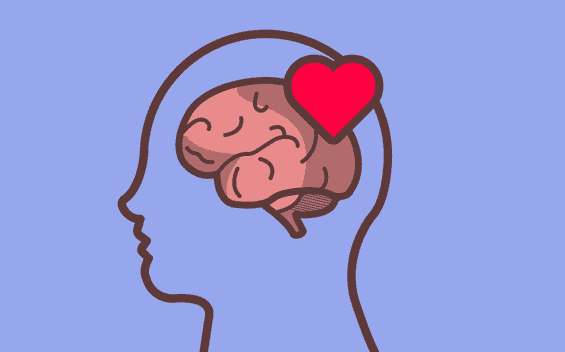
Written and verified by the psychologist GetPersonalGrowth.
Last update: 15 November 2021
There are many people who suffer from emotional illiteracy. They are adept at mastering multiple skills, have an infinity of titles and skills, but have the same emotional management as a three-year-old. We are not born with this ability, whether we like it or not we should devote more resources to it.
Most of us know what the principles of good physical health are, namely: a balanced diet as natural as possible, exercise, sleep between 7 and 9 hours every night, and have regular medical checks to make sure. that everything is fine.
"When you listen with empathy to another person, you give that person a psychological air."
-Stephen R. Covey-
However, one element that we almost alarmingly overlook lies between our ears: the brain. We are not referring to that collection of nerve cells, structures and convolutions. We need to pay attention to the indicators of our emotional health, that is, in that ability to feel life and relationships, in the state of that faculty, in order to understand, control and change our and others' moods.
The human being is much more than a series of linguistic, mathematical or technological skills. We are primarily social and emotional beings, dimensions that are often overlooked and even underestimated in educational institutions. Because, let's face it, we don't need much knowing how to solve a second-degree equation if we are unable to communicate effectively and feel empathy for the people around us.
Emotional illiteracy: what is it?
We know that the term "illiteracy" has a negative connotation, however, we cannot otherwise call a more than evident psychosocial reality. Let's take an example: nowadays there is a lot of talk about the figure of transformational leaders. These are people who are able to energize an organization thanks to their good management of emotional intelligence, motivation, their gift to make an impact on others and create environments in which people can make use of their creativity.
Sometimes ideas are sold that, in reality, are conspicuous by their absence. It is quite common, therefore, to find managers or company executives who are not incapable of inspiring others and controlling their emotions, frustration, anger ... They are like 3-year-olds who get angry because they don't get what they want, completely stuck in that self-centered thinking defined by Piaget.
Let's see, however, what are the dimensions that characterize emotional illiteracy:
- Inability to understand and manage their emotions.
- Difficulty understanding the emotions of others.
- This lack of emotional self-awareness often places them on very sensitive terrain. They overreact to any problem, feel overwhelmed and overwhelmed by any difficulty, be it small or large.
- They do not identify with each other, they are unable to put themselves in the shoes of others, to understand different realities from their own.
- Their social skills are very rigid and although they can develop at times, they lack sensitivity, assertiveness and that authentic closeness with which to create meaningful bonds and not just relationships motivated by self-interest.
- On the other hand, the costs of emotional illiteracy can be enormous: polarized thinking, repression, racism or sexism, narcissism, the obsessive need to be right ...
There is a further, no less important fact that must be remembered. Emotional illiteracy, or the lack of psychological resources and emotional mechanisms with which to better manage dimensions such as sadness, anger, fear or disappointment, makes us very more vulnerable to a range of mental disorders.
Conditions such as depression or chronic anxiety states are very common in profiles with little or no ability to better manage these inner states.
The importance of educating in emotional intelligence
“We have to educate in emotional intelligence”, we have to train in this skill, be more capable in emotional matters. We've heard it too much, read in books, have taken courses and nod our heads every time we are reminded of how important it is to have greater proficiency in this skill.
However, the gaps continue to exist. Even if this goal is already present in the curricula of some schools, we cannot ignore something that is of equal if not greater importance. Before teachers and professors educate children to master thought and emotions, they too should be instructed in advance.
"Your intellect may be confused, but your emotions will never lie to you."
-Roger Ebert-
Spesso we ourselves reach our adulthood with a lot of insecurities. We wake up every day aware that we lack tools to master our emotions, as well as some skills to better deal with adversity. In this way, if we do not start with ourselves first by reaching a self-awareness of our emotional illiteracy, we will hardly have that talent necessary to motivate the little ones, to train them in empathy, assertiveness or social skills ...
A good "emotional literacy" offers us great benefits. First of all we will learn that every emotion has its space and its usefulness, that the differentiation between "negative" and "positive" emotions is not always right, because in reality those that we often avoid feeling, such as sadness or disappointment, have their spaces of knowledge, their usefulness and their precious meaning.
Therefore, there is no escape from emotions, they confront each other to know what they want to tell us. It is a sensational way of self-knowledge that gives us strengths, which offers our gaze a broader and more flexible spectrum. We do not put aside and we do not despise the need to be "updated" in emotional matters. Let us take care of these inner worlds where we can recognize, express, manage and transform these feelings so that they always flow in our favor and not against us.


























